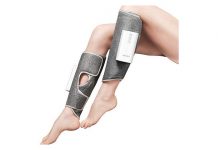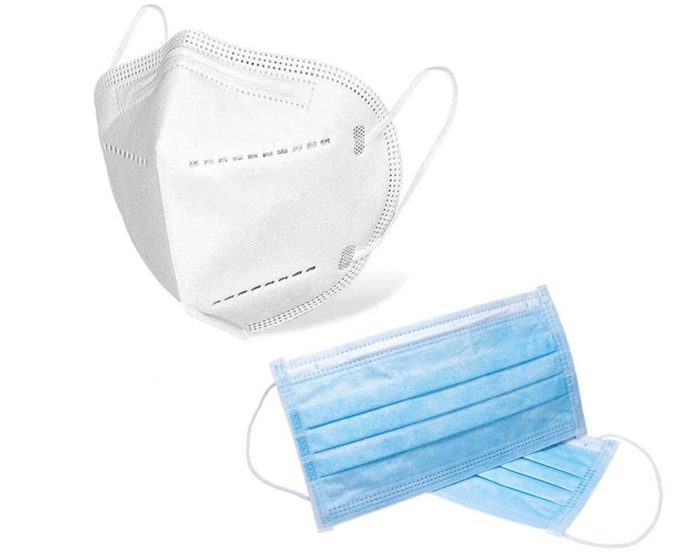Face masks are generally used in protecting people against airborne particles or liquids that can cause infections. A medical mask can be the regular surgical mask (know more) also known as a face mask or an N95 mask. If you need facial medical masks, welcome to inquire us at Trendebut.
N95 masks or respirators are regulated by the OSHA and NIOSH. There is a difference between an N95 respirator and a disposable surgical mask. In this post, we will show you the difference between other important pieces of information.

N95 respirators
The CDC (Center for Disease Control) has put it forward that an N95 respirator should not be used by just anyone. This kind of mask is to be used by professionals in the medical field alone. Members of the general public should not make use of an N95 respirator when seeking protection from respiratory conditions.
The recommended way of avoiding infection by viruses that cause respiratory diseases is better hygiene. A perfect example is a recommendation for avoiding coronavirus, a plague that is putting the world on its toes currently. By better hygiene, we mean washing hands with water and soap as well as staying away from infected zones.
Just so you know, there isn’t an additional health benefit from wearing an N95 respirator. It is a professional gear that may even put one at more risk if not used properly.

Surgical masks
Again, the CDC has reiterated that wearing face masks is not the best protection against respiratory diseases such as COVID-19. In simple terms, a surgical mask is a disposable loose-fitting device worn over the nose and mouth. It is worn to protect the wearer from potential contaminants, especially those that are airborne.
A disposable surgical mask should not be shared. These devices are also known as medical, dental, or isolation masks depending on the occasion of use. In some cases, they come with face shields, and sometimes, they don’t. While surgical masks are mostly referred to as face masks, not every face mask is seen as surgical.
Surgical masks have different thickness levels that provide different levels of protection from liquids. The thickness is also a determinant of how freely you can breathe while having the mask on. One more thing the thickness does is determine the level of protection you enjoy from wearing the mask.
When you wear a medical mask properly, it helps to protect you from large airborne droplets. You should take note that a disposable surgical mask doesn’t offer sufficient protection against small particles. Examples of small particles, in this case, are droplets that result from sneezes, coughs, or other medical procedures. This is why the CDC warns against using these masks as a precaution against coronavirus.
Never forget that surgical masks are meant for single-use after which you dispose of them. As soon as you notice soiling, damage, or difficulty in breathing, dispose of the mask. After disposal, wash your hands thoroughly then put on a new mask. The best way to dispose of a mask is to put inside a plastic bag before dropping it in the trash.

Comparing N95 respirators to Surgical masks
N95 respirators and surgical masks are intended for different uses and thus are regulated by the FDA differently. In this section, we will take a look at the differences and similarities between both devices.
We have already told you that surgical masks are loose-fitting and disposable. They act as a barrier between the nose and mouth of a person wearing one and the immediate environment. As a result, they are seen as potent in protecting harmful airborne droplets.
It is important to note that surgical masks have loose edges. What this implies is that they don’t seal up the areas around the mouth and nose perfectly.
An N95 respirator, on the other hand, was designed to fix the seal-up flaw. These respiratory devices have a closer fit to the face than a disposable surgical mask. The implication of this is better and more efficient protection from airborne particles. Due to this fact, N95 respirators are recommended for medical use and are more common within the confines of medicine.
Despite the differences enumerated above, there are a few similarities between both devices. Some of them are stated below:
- Both devices should never be reused or shared for whatever reason.
- They are usually tested for filtration efficiency, fluid resistance, biocompatibility, and flammability.
As you will expect, an N95 respirator presents better test results than a medical mask. This is why they are seen as specialized because it takes a bit of training to make use of respirators properly. For this reason, there are specific precautions that you must take when using an N95 respirator. We will discuss these in the next section of this post.

General Precautions guiding the use of N95 respirators
We begin this section with a salient truth, not everyone can use an N95 respirator. If you have chronic cardiac or respiratory conditions, you need medical advice before using one. This is also the case if you suffer from any disease leading to breathing difficulties.
The reason for this is that an N95 respirator is tight-fitting and can make it more difficult to breathe. A few models come with exhalation valves that help to make breathing easier. The valves also create a reduction in heat build-up. It is important to note here that the exhalation valves should never be used when there is a requirement for sterile conditions.
Never forget that no matter how potent your respirator is, it was designed for one-time usage. Once you notice damage, soiling, or difficulty in breathing, remove the mask and dispose of it properly.
People who have facial hair and children are advised not to make use of N95 respirators. The reason for this is that it doesn’t fit perfectly with children and individuals having facial hair.
Conclusion
By now, you know that there is a difference between an N95 respirator and a surgical mask. A disposable surgical mask is less potent in protecting an N95 respiratory. However, a medical mask shares a few similarities with a respirator.



























